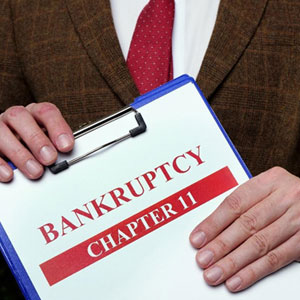 In this article, you can discover:
In this article, you can discover:
- How secured creditors’ claims are addressed in Chapter 11 bankruptcy.
- The consequences if the bankruptcy court does not approve a reorganization plan.
- Alternatives to Chapter 11 bankruptcy and common challenges faced by businesses undergoing the process.
How Are Secured Creditors’ Claims Treated In Chapter 11 Bankruptcy?
Secured creditors’ claims are handled similarly across all bankruptcy types, with their liens remaining on the assets securing the debts. The debtor can either surrender the collateral, converting any deficit into unsecured debt or continue to make payments as due under the agreement with the secured creditors. Chapter 11 and Chapter 13 allow the debtor to manage any overdue payments through their proposed plan.
The debtor also has the option to negotiate with the creditor to keep the property securing the debt while paying off that debt differently from the original agreement. Although the secured creditor isn’t obligated to accept these revised terms, it could be advantageous for the secured creditor to agree to a modified repayment plan rather than potentially receiving less from an unsecured deficiency.
What Occurs If The Bankruptcy Court Does Not Approve The Reorganization Plan?
If the bankruptcy court does not approve the reorganization plan in a Chapter 11 case, several things could happen. The court might conditionally deny approval, requesting the debtor to submit a revised plan that addresses the issues preventing confirmation. Alternatively, the court could outright reject the plan and dismiss the case if it deems it unfeasible or unable to propose a viable plan. Last, the court might deny plan confirmation and convert the case to Chapter 7, leading to the liquidation of the debtor.
Are There Alternatives To Chapter 11 Bankruptcy For Businesses Experiencing Financial Distress?
Yes, there are alternatives, some of which are less expensive, but they lack the structure of bankruptcy. For instance, an organized liquidation or complete shutdown of the business is an option. However, if you wish to keep the business operational, Chapter 11 might be the best choice, unless you can negotiate resolutions with your creditors regarding their outstanding debts. If shutting down the business is acceptable, Chapter 11 may not be required, as creditors can claim the business’s assets.
Can Chapter 11 Bankruptcy Help A Business Renegotiate Its Debts With Creditors?
Indeed, Chapter 11 presents an opportunity to pause creditors’ collection efforts and establish a repayment plan, which might only partially repay some creditors. This creates a favorable environment for the debtor to renegotiate with creditors, particularly unsecured creditors.
What Are Some Common Challenges Encountered By Businesses Undergoing Chapter 11 Bankruptcy?
Undergoing Chapter 11 bankruptcy is often fraught with challenges. The most common challenges include managing the additional costs of lawyers, trustees, filing fees, and other associated expenses while the business is already financially strained. Other challenges include the added time commitment required from the involved parties and owners to ensure a successful bankruptcy process. Simultaneously keeping the business afloat while addressing bankruptcy issues can be a juggling act.
Last, for cases not under sub-chapter V (the Small Business Reorganization Act), there is the risk of equity owners losing their equity, which can disincentivize them from pursuing Chapter 11, pushing them towards dissolving the business or filing for Chapter 7 instead.
For more information on Secured Creditor Claims In A Chapter 11 Bankruptcy, an initial consultation is your next best step. Get the information and legal answers you are seeking by calling (205) 506-3354 today.

Call Us Now For A Personalized Case Evaluation
(205) 506-3354

